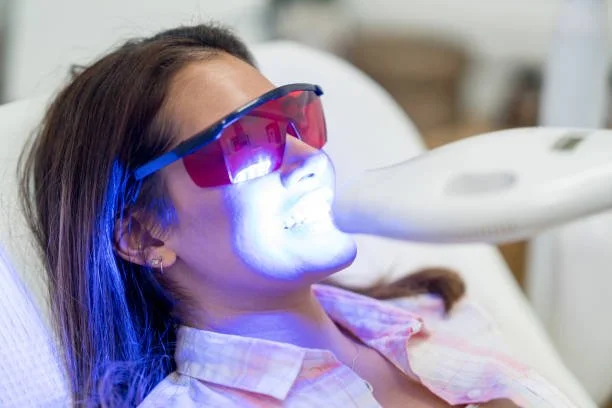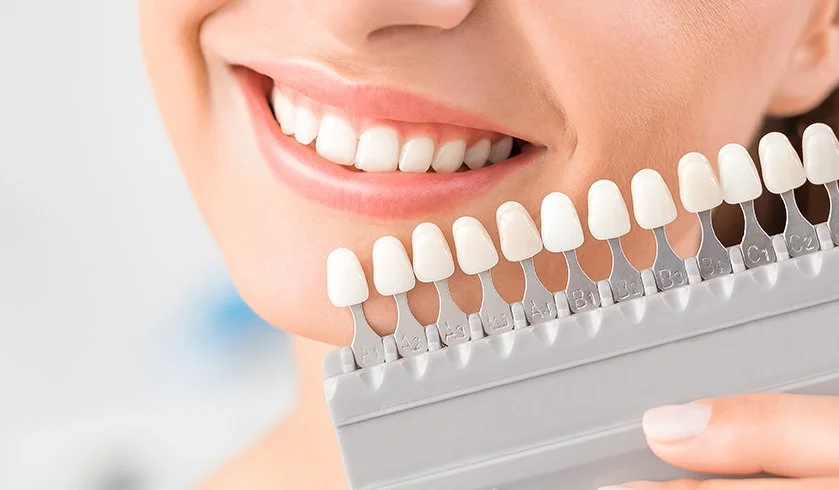TEETH WHITENING
WHO DOESN’T LOVE A
DAZZLING, WHITE SMILE?
Whiten your teeth in just 1 hour!
Teeth whitening is a simple, non-invasive dental treatment that helps change the color of natural tooth enamel to enhance the beauty of your smile.
Over time, drinking coffee, red wine, smoking cigarettes, and simply aging can stain our teeth, as can certain medications such as tetracycline, but we can help!
Although teeth whitening is not permanent, results can last from a few months up to 3 years!
3-5 Shades Brighter Guaranteed!
Frequently Asked Questions
What is the process of teeth whitening?
Teeth whitening is usually done in about an hour. The procedure involves application of gum/lip protection and of a tooth whitening gel containing 35% hydrogen peroxide, followed by aiming a special blue UV light at your teeth for three 20-minute intervals.
Who is a candidate?
Teeth whitening may be beneficial for those with normal wear of the outer tooth layer that have
yellow, brown or stained teeth
those with fluorosis, a discoloration due to excessive exposure to fluorides during tooth development
those with stained teeth due to medications such as tetracycline
Who is NOT a candidate?
You are not a candidate if you have
implants
crowns
bridges
dentures
How long do results last?
Teeth whitening isn't permanent and results can last from a few months to up to 3 years and it varies from person to person. Your eating, drinking, and oral hygiene habits can impact how long your teeth whitening results last, such as eating pigmented foods, drinking red wine, tea or coffee and smoking can all stain your teeth.
Can you eat after teeth whitening?
For 48 hours after a professional teeth whitening, it's recommended that you avoid acidic, pigmented foods and beverages and stick to things that won't cause discoloration. This is commonly called the “White Diet”, a short-term diet consisting of white and light-colored foods and drinks.
Does Teeth Whitening hurt?
Usually, people with teeth sensitivity will experience discomfort or pain during whitening treatments on either teeth or gums.
Side effects and other considerations
While teeth whitening is considered safe, you may experience some side effects from treatments:
Teeth sensitivity: Your teeth may become more sensitive following teeth whitening. You may experience this on your first or second treatment, and it may diminish with time. Treating sensitivity with products that contain potassium nitrate and sodium fluoride gel is recommended.
Irritated gums: You may also experience gingival irritation. This is when your gums become irritated. This can happen because of contact on your gums with the whitening product. This side effect should go away after your treatments.




